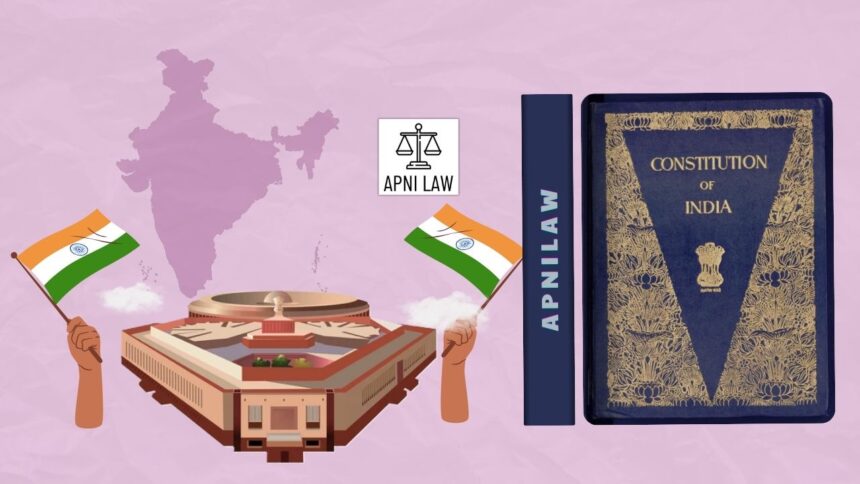Right to Freedom of Religion (Articles 25–28) Overview
Introduction
India has always been home to many faiths and traditions. The Constitution protects this diversity through the Right to Freedom of Religion under Articles 25 to 28. These provisions give every individual the right to follow their beliefs, practice rituals, and even spread their faith. At the same time, the state ensures that these rights do not disturb public order, morality, or health.
The framers of the Constitution knew that religion could unite but also divide if unchecked. By making religious freedom a Fundamental Right, they turned faith into a matter of personal choice rather than state control. This balance is what makes India a secular yet deeply spiritual democracy.
Article 25: Freedom of Conscience and Free Profession of Religion
Article 25 allows every person the freedom of conscience and the right to profess, practice, and spread their religion. This means people are free to believe in any faith, or even none at all. They can perform rituals, attend ceremonies, and worship in the way their religion teaches.
However, this freedom is not unlimited. The state can restrict it for public order, morality, or health. For example, practices like human sacrifice or untouchability cannot be defended as religious. The Supreme Court in Shirur Mutt Case (1954) made it clear that only essential practices of a religion are protected. Activities like temple management or money collection can be regulated by the state.
Article 26: Freedom to Manage Religious Affairs
Article 26 gives religious groups the right to manage their own affairs. A temple, mosque, or church community can run institutions, own property, and conduct rituals without state interference.
Still, this freedom has limits. If funds are misused or public order is disturbed, the state can step in. The Constitution allows autonomy but demands accountability. Therefore, Article 26 ensures that religion can thrive while keeping social welfare in mind.
Article 27: Freedom from Compulsory Taxation for Religion
Article 27 protects people from being forced to pay taxes to promote any religion. In a secular country like India, the state cannot spend taxpayer money to favor one faith over another.
This provision keeps the government neutral in religious matters. However, it does not stop the state from funding secular purposes of institutions run by religious bodies, such as schools or hospitals. In this way, Article 27 maintains fairness while also supporting welfare.
Article 28: Freedom in Educational Institutions
Article 28 keeps government schools and colleges free from religious instruction. This ensures that public education remains secular. Students cannot be forced to take part in prayers or rituals in state-run schools.
But the Article gives freedom to institutions run by trusts or religious organizations. They can teach religion if they choose, though attendance must remain voluntary. As a result, Article 28 strikes a balance between secular education and the rights of private religious institutions.
Role of the Judiciary
Indian courts have shaped the meaning of these Articles. In Bijoe Emmanuel v. State of Kerala (1986), the Court protected Jehovah’s Witness children who refused to sing the national anthem for religious reasons. The Court said their quiet respect was enough.
In Shirur Mutt Case (1954), the Court explained the difference between religious practices and secular matters. It held that only essential rituals deserve full protection. Moreover, the Court has often reminded that harmful practices cannot hide under the name of religion.
Importance of Religious Freedom in India
The Right to Freedom of Religion remains crucial in India’s diverse society. It shields minority groups from domination and gives every citizen confidence that their beliefs are respected. It also keeps India aligned with its identity as a secular state.
Modern debates on conversion, temple entry, or use of public spaces for worship show how relevant these Articles are even today. Therefore, by balancing personal faith with public welfare, the Constitution preserves harmony in a country of many religions.
Frequently Asked Questions
1. What does Article 25 guarantee?
Article 25 guarantees freedom of conscience and the right to profess, practice, and spread religion, subject to public order, morality, and health.
2. Can religious groups manage their own institutions under Article 26?
Yes, they can run their own institutions and manage property, but the state may regulate them to prevent misuse or maintain order.
3. Why is Article 27 important for secularism?
Article 27 prevents the state from using taxes to support religion. This ensures equal treatment of all faiths and protects secularism.
Conclusion
The Right to Freedom of Religion under Articles 25–28 is one of the strongest safeguards of India’s secular vision. It protects the right of every person to believe and practice while giving groups freedom to manage religious matters. At the same time, it prevents misuse by placing limits based on public interest.
By keeping education secular, blocking compulsory taxation, and balancing faith with responsibility, these Articles make sure that diversity strengthens unity. They remain essential for India’s democracy, where people of many faiths live side by side with dignity and freedom.







